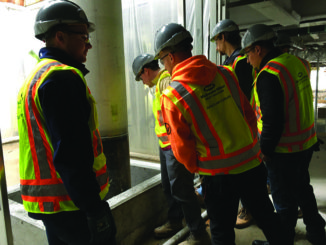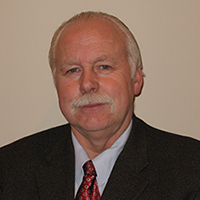

The official end to the legislative session is April 23. However, most believe the Legislature will need extra sessions to get the two-year budget done and to provide additional funding for education.
The McCleary Mandate
The mandate to provide more money for K to 12 education stems from a court case called McCleary. The state’s constitution requires adequate state funding for basic education. The state Supreme Court ruled in the McCleary case that the state is not spending enough on basic education. The problem is two-fold. State funding has not kept up with demand and local school property tax levies have crept in to pay for some of the basic education portion. The Legislature has increased funding over the last four years, but will need more to satisfy the Court.
The Republicans and Democrats disagree on how much more is needed and how to pay for it. The Senate Republicans proposed a new plan that changes the way the state reimburses for education, switching to a per pupil formula, and adjusting the way property tax levies for schools are handled that puts more burden on the state. The Democrats have offered a bill that outlines how the money would be spent, but does not specify where the additional money to pay for it would come from.
Governor Inslee proposed three new taxes to fund McCleary and several other state programs—a capital gains tax on higher income people, an increase in the business and occupation tax for the services sector, and a tax on carbon emissions. So far the Legislature has not rushed to hear the bills. Discussions on which tax – if any and how much – will happen at the end of session or in extra special sessions that will most likely be necessary.
Other Issues and Opportunities
Last year there were competing proposals on minimum wage, but the issue was not dealt with in the Legislature and ended up on the ballot in November. This year a similar dynamic is happening on paid family and medical leave. Faced with the prospect of an initiative this fall, there are discussions on a compromise bill. The paid family and medical leave program would operate like a socialized insurance program, paying workers a set amount when they have a family or medical issue that requires time away from work. Most agree the program should use the unemployment compensation system to collect the money and Employment Security should administer the leave program. But the question of who pays – only employees or employees and employers – has not been agreed. The length of leave is also being debated.
The state capital budget will almost certainly increase funding for new schools and classrooms, creating opportunity for SMACNA contractors interested in this type of work. But the increase in school construction funding will result in a reduction of funding for other types of state construction. There may be opportunity for SMACNA contractors in the affordable housing area. This year there are several proposals that would provide local government new revenue options to construct affordable housing. These projects would likely be in the urban areas and on a commercial scale. For the rural areas, the Legislature is looking at expanding a loan program for homeowners who need weatherization work but need other structural work before the weatherization work can be done.
In Conclusion
The work of the Legislature on most bills will be nearing completion at the time of publication, but the bills have not been resolved at the time this article was written. SMACNA will provide an update on bills related to contracting and other areas of interest that have passed the Legislature at the end of April. If you have questions, please contact the SMACNA offices.
Kathleen has worked for SMACNA Western Washington as its Legislative Consultant for over 20 years. She has a government affairs consulting business, Capitol Strategies Consulting, and represents other business and transportation clients.



